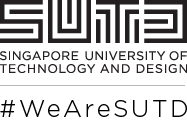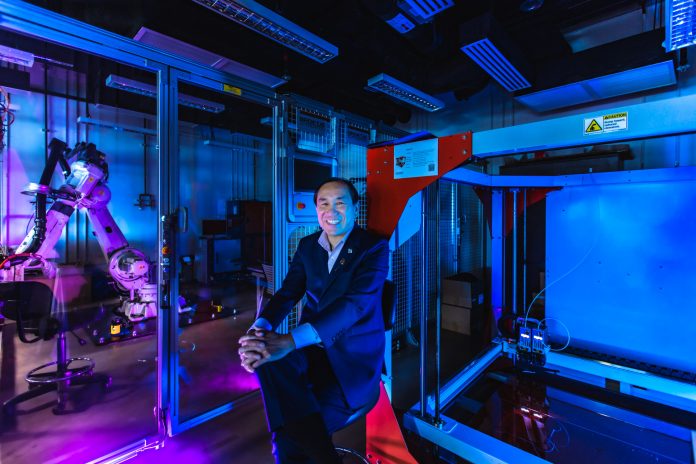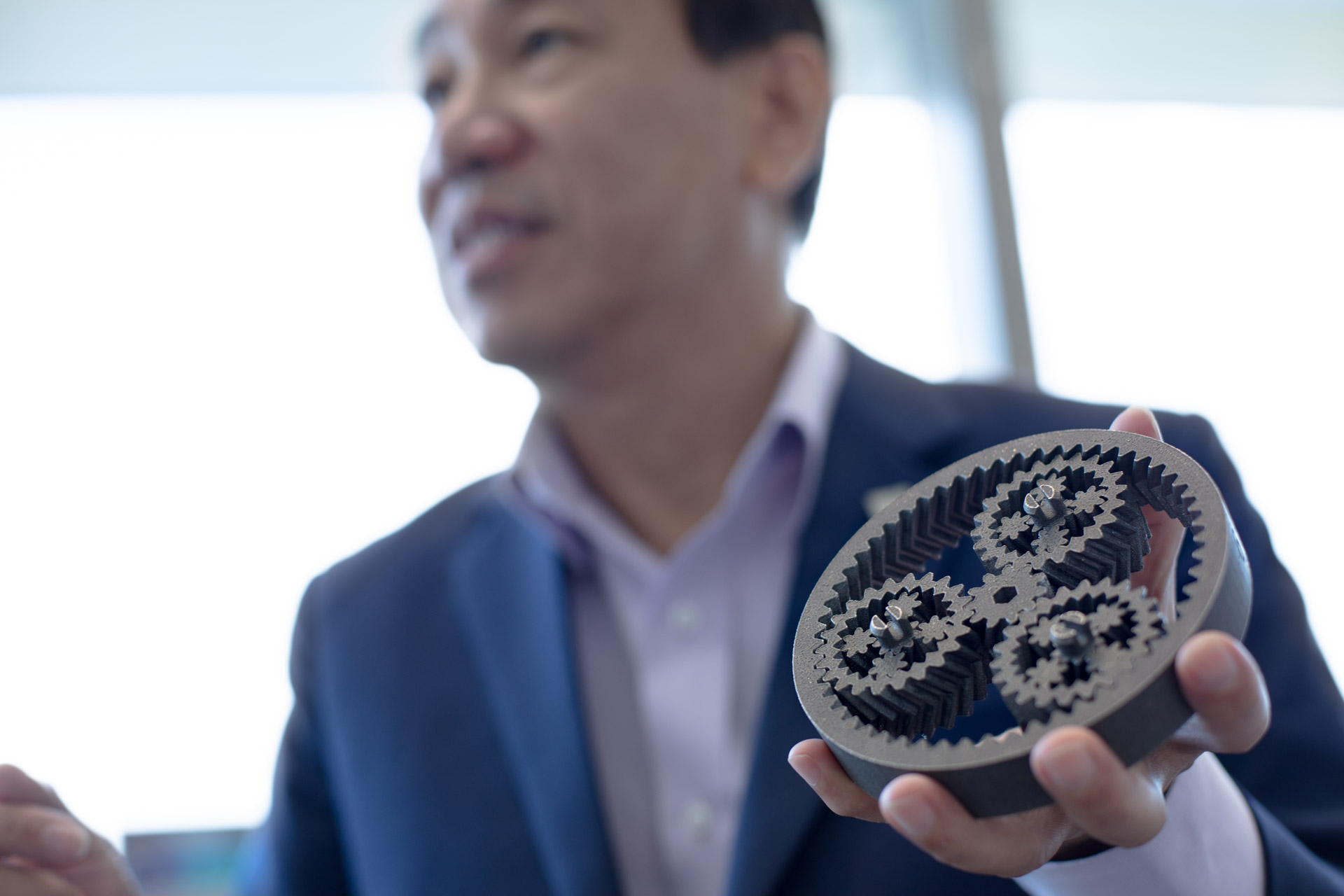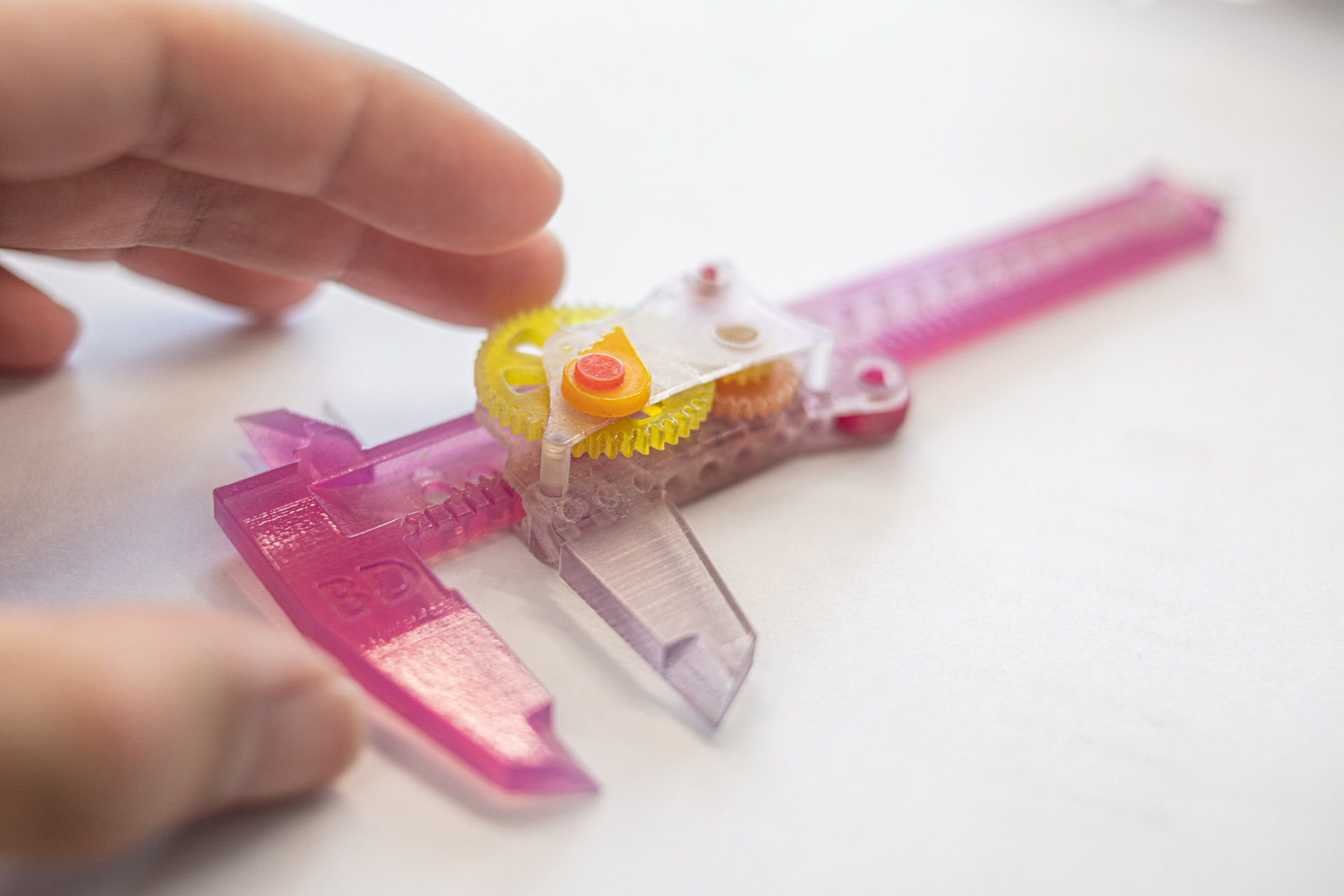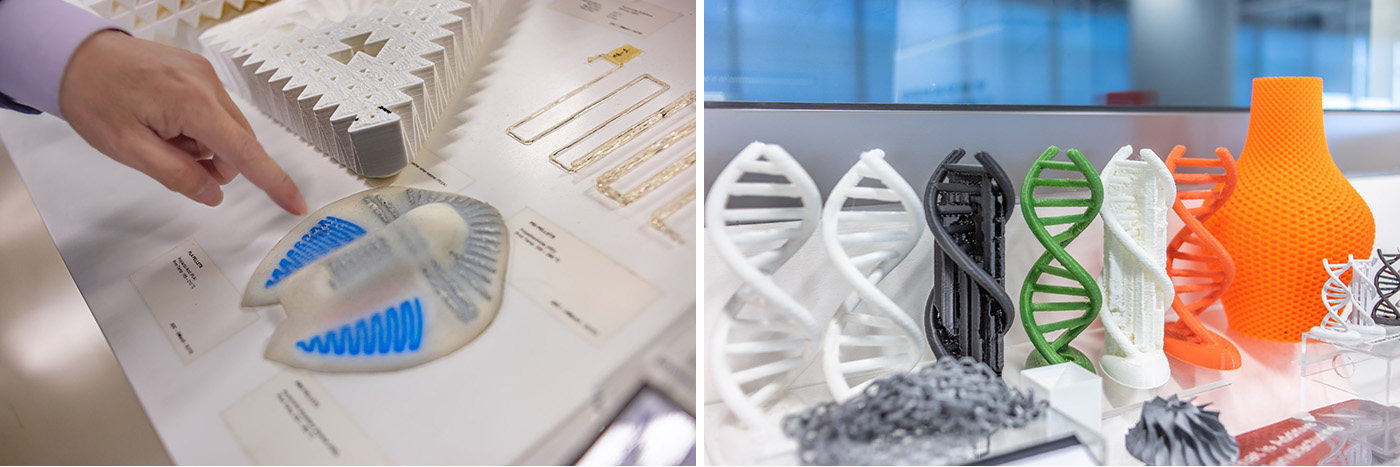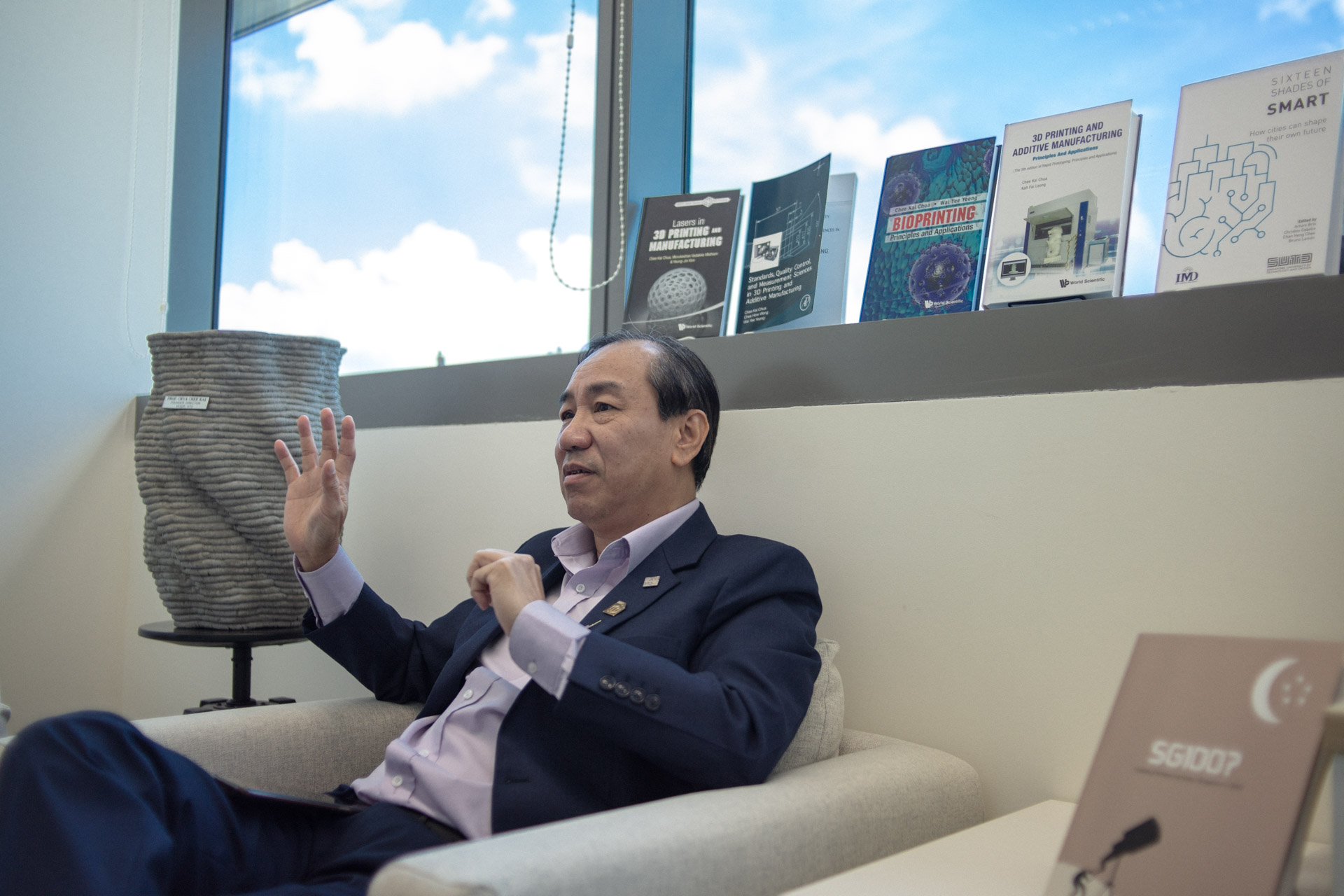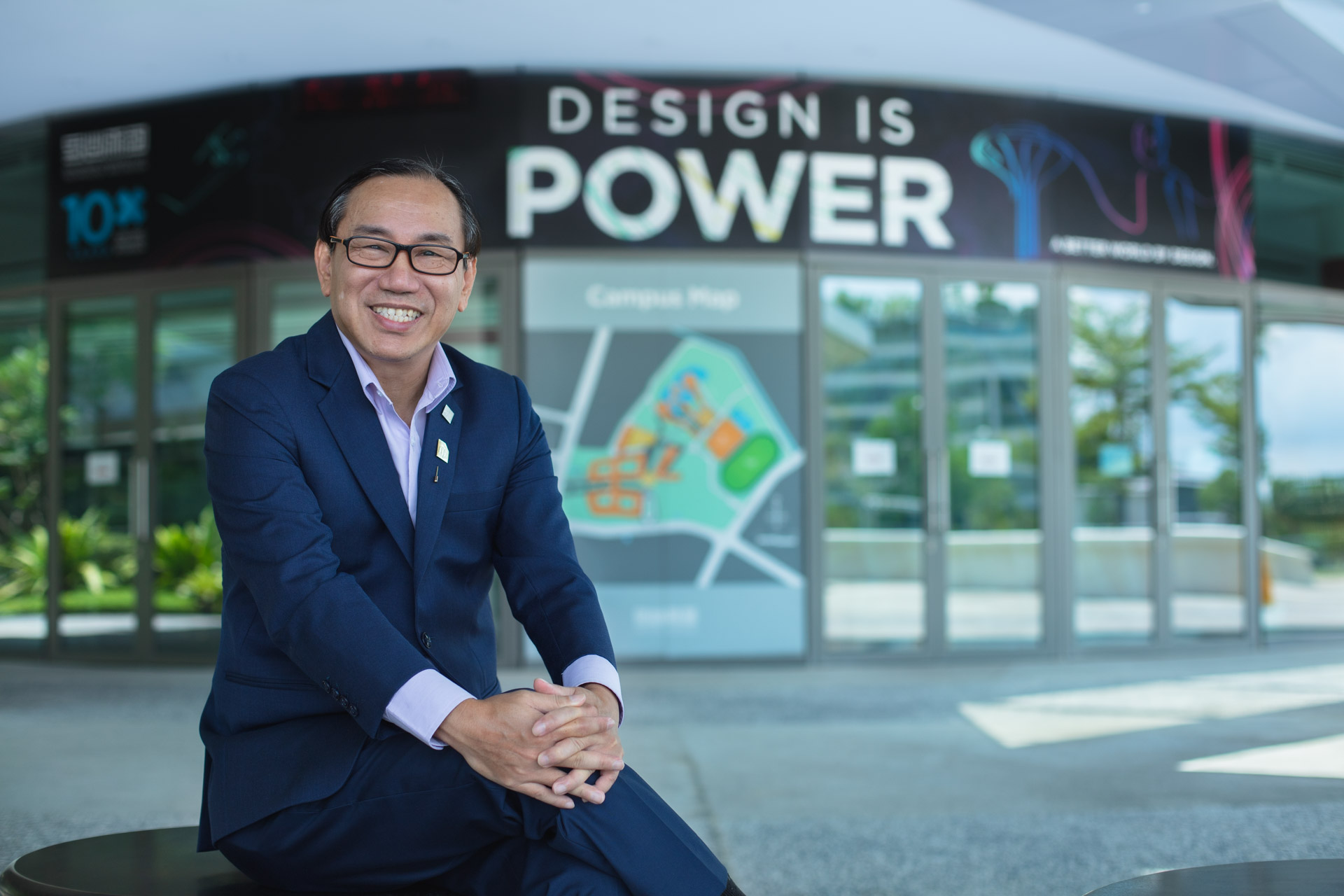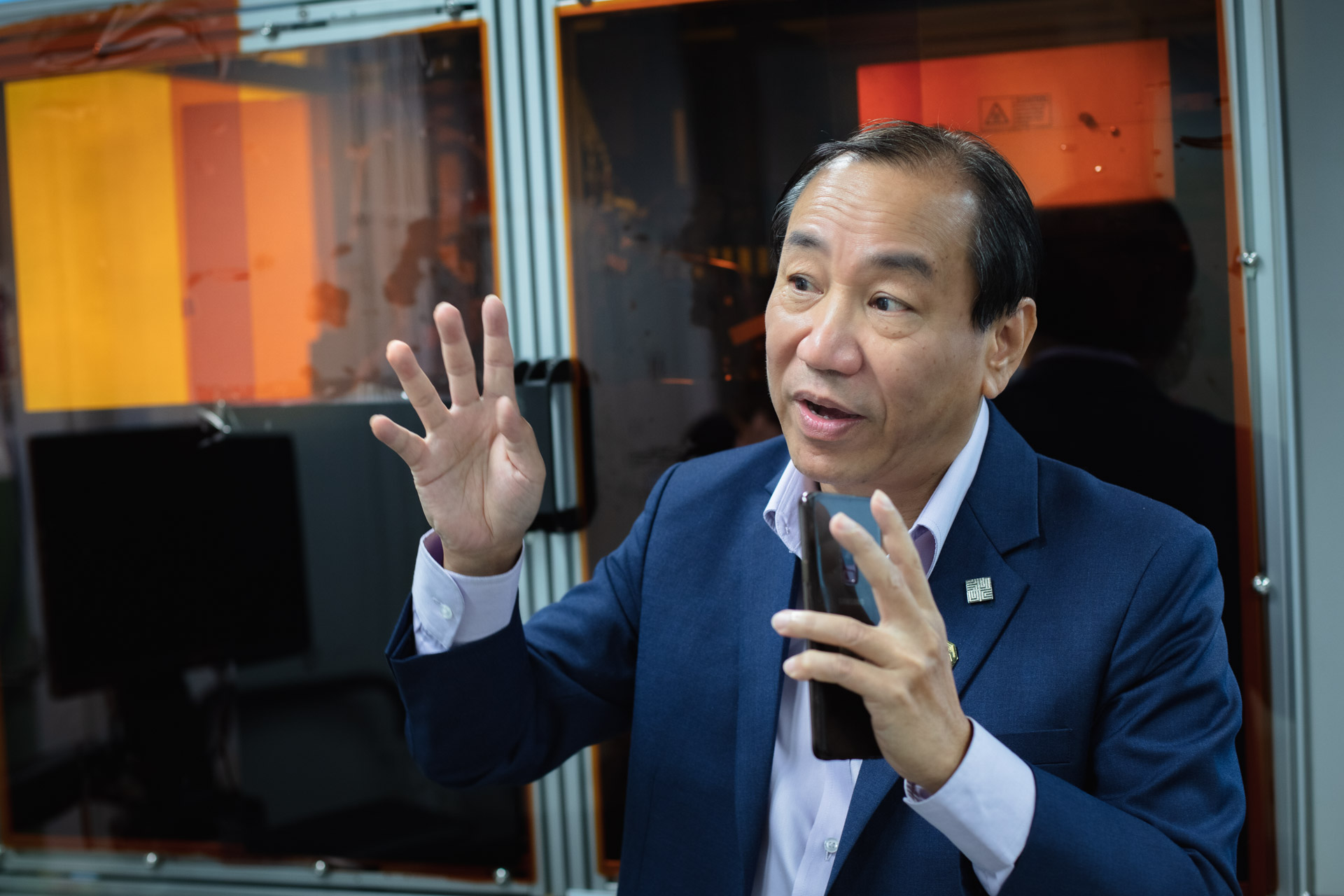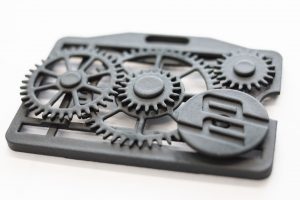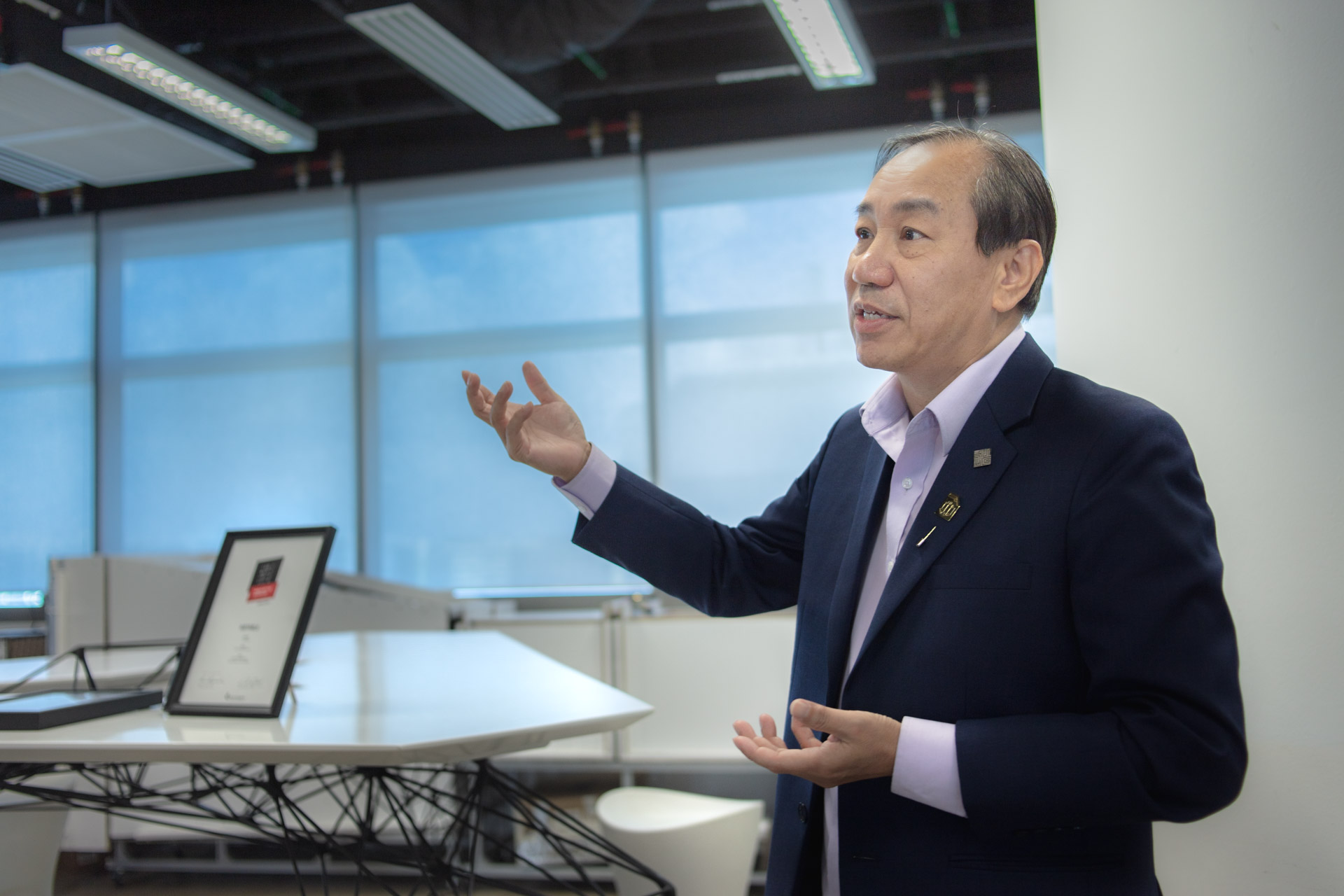Professor Chua Chee Kai tells us his plans on cultivating leaders of the future world.
(Above) Professor Chua in front of a robotic arm that SUTD researchers built to fabricate 3D composites
“I like X-men. The guy who can control your mind? Whoa very powerful ah,” Prof Chua remarks affably as a burst of laughter fills the room.
While Prof Chua certainly isn’t manipulating minds like Professor X, what he’s doing in real life is pretty close. But a lot more noble. “What we want to do is nurture a very special breed of people,” he explains. By people, he’s referring to design engineers who are going to disrupt industries. Because “you know our motto, right? We want to design a better world.”
And he is doing just that.
Professor Chua Chee Kai – The World’s Guru in 3D Printing
Professor Chua Chee Kai is the newly minted Head of Pillar for the Engineering Product Development (EPD) programme. And if you’re into 3D printing, you’ll probably find his name familiar.
Prior to joining SUTD, Prof Chua had been a professor at NTU for almost thirty-five years and is the man behind the Singapore Centre for 3D Printing (SC3DP), the largest additive manufacturing (AM) facility in the world. He is also the most published and cited AM researcher internationally, and the first Asian scientist to be conferred the prestigious International Freeform and Additive Manufacturing Excellence (FAME) Award.
Undoubtedly, Prof Chua is one of the most prolific AM researchers in the world.
A wholly 3D printed functional vernier calliper
From world-class researcher to world-class education
“When I moved (to SUTD), many people asked me why. After all, I spent a good thirty over years there,” he recalls. “I think I’ve left a strong legacy behind and it’s time, maybe, for me to do something different.”
Now, Prof Chua is ready to pass on his wealth of knowledge to future world-class innovators.
“SUTD is very different. It has a very different culture and DNA,” he continues. “It’s so easy to get things done here. People are so collaborative – it’s a culture that runs through its veins. Collaboration is in their blood.”
And it’s this very culture that catalysed the development of Prof Chua’s new programme for EPD – Beyond Industry 4.0 – even though he’s just barely a year into his new role.
More than industry-ready
Beyond Industry 4.0 is a programme that seeks to establish a dynamic relationship between EPD students and the industry.
“We’re like a matchmaker,” he laughs. “We pass students’ CVs to companies. They pick their ideal candidates, give out study awards and provide internships. And if everything goes well, the students can join these companies once they graduate.” It’s a robust ecosystem that allows companies to employ students who are ready-made for them. Students, on the other hand, can learn from top companies.
“It’s a win-win situation.”
Prof Chua next to a 3D printed concrete vase from SC3DP
“But for good companies to come on board, we’ve got to have top-notch students that companies want. I’ve spent over thirty years in academia, interacted with many CEOs and presidents, and they always tell us that curriculum is only one part of what they’re looking for. They want more. They want students who are holistic, can communicate and look at things from a big picture.”
That’s where SUTD’s unique design-centric and multi-disciplinary pedagogy comes into play.
A Design Point-of-View
SUTD’s focus on design imbues students with the spirit of design thinking right from the start. “We make sure there’s always a design component in every subject. It’s really drilled right into them,” Prof Chua explains.
Design is power
In fact, each undergraduate typically undertakes at least 25 to 30 projects before they graduate. This makes them “very hands-on. They’re not afraid to take on projects. They know how to work as a team. And these are virtues that top companies look for.”
The Human in Engineering
Prof Chua adds that for students to have a holistic education, they must not just look at technical solutions. A strong grounding in humanities reminds them that they are not just engineers, but global citizens as well. Citizens who are in tune with culture, society, and the circular economy, and understand both legal and ethical issues.
“We’re not just here to help companies make money; we need to care about the society too!” Prof Chua remarks with a laugh.
The Importance of Being Multi-disciplinary
But for EPD students, it’s the multi-disciplinary nature of SUTD that sets them apart from their peers. “If you look at a handphone, how many engineering disciplines do you think are involved?”
(We’ll give you five seconds to think about that.)
“Now”, Prof Chua elaborates. “The first thing you think of is probably mechanical engineering. But there are electronics in it too. That’s two fields already. And if you think further, there are more.
For instance, materials. That’s a discipline by itself. And if you talk about production, there’s manufacturing engineering. If you look even further down, there are things like logistics and supply chain. So to produce a handphone, there’re already four to five different disciplines involved.”
“If you enroll into a traditional programme like mechanical engineering, then your view of things remains at a component level. Things like electronics are done separately. That’s not right. Your view of things should always be holistic.”
Jack of All Trades, The Mastermind
Which is why Prof Chua is taking this multi-disciplinary quality up a notch for Beyond Industry 4.0. EPD students opting for this track will not find themselves specialising. Rather, they’ll be trained to be “cognisant of different technologies” and know “a bit of everything.”
For this, Prof Chua identified six big areas of Industry 4.0 (3D printing, robotics, cybersecurity, Internet of Things, machine learning/AI and data analytics) and convened experts from all the pillars to support the programme.
This broad-based knowledge gives students a powerful overview of all that’s happening, allowing them to be placed in vantage positions like leadership and consulting.
“This is a new generation of people who will be very knowledgeable about
smart factories on both technological and interface levels.”
“And this multi-disciplinary approach is a unique focus of our undergraduate programme. The collaborative DNA that I mentioned earlier has allowed the new track in “Beyond Industry 4.0” to be approved by the University in just 6 weeks. This is only possible with the kind assistance, support and co-operation of all pillars and clusters, as well as the undergraduate office, admissions office, career office which oversees internship, international relations office which looks at overseas exchange, and advancement office which administers the study awards.”
“And with good students and good companies, we can make this programme truly world-class.”
Design Engineers – Disruptors of the Future World
Holistic, hands-on and multi-disciplinary – design engineers, or the “special breed of people” that Prof Chua describes – are “the people who will be developing new industries of tomorrow.”
“Take food printing for example. Today, I’m printing food. Tomorrow, I can sell printers. Then, I can create a whole new generation of ink-based foods and sell that too. After that, everyone can buy a printer, download recipes and customise their own food at home. That will completely change the way people eat. New jobs will be created; old ones will disappear. That’s how it’s disruptive. 3D printing is disrupting a lot of industries.”
“So I hope our students will always be proactive, and always continue to better the lives of people.”
Like what you just read?
Missed our Open House talks? Rewatch the sessions here.
#whySUTD? We’re glad you asked – here’s why!
It can be hard to ask the right questions that will help you to decide which university to join, so we’ve compiled a list of FAQs for you here.
